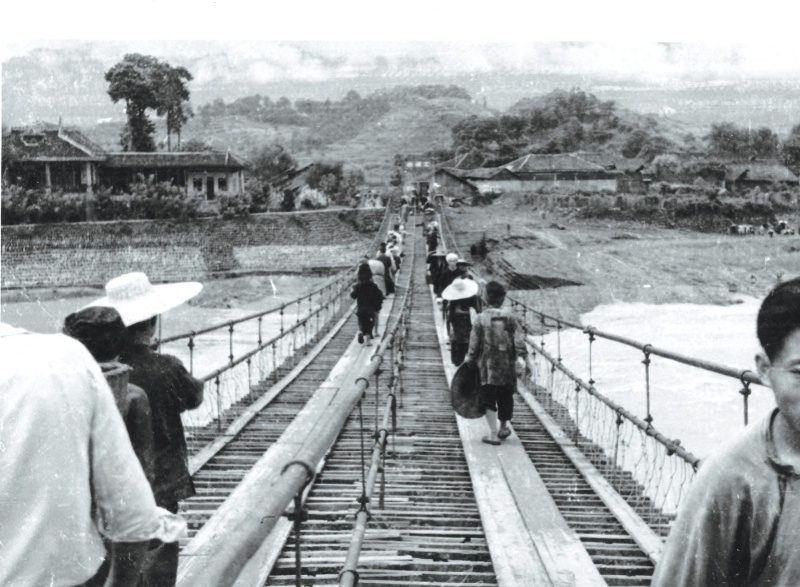Political calamity. Debilitating illness. Detour. Disappointment. It is one thing to have a vision for the thing to be done; it is quite another to accomplish it. We find detours along the way. Have you ever noticed?
Detour and disappointment are the background for a famous little passage from Habakkuk. “Write the vision, and make it plain upon tablets…. [The vision will] not lie: though it tarry, wait for it; because it will surely come…” (Hab. 2:2,3, KJV).
The Book of Habakkuk reports a dialogue between a burdened prophet and his faithful God. The prophet is mindful of his Lord (Hab. 3:2) yet burdened by his history (Hab. 1:1,12): things have not worked out for him as he had hoped. Chaos is right at the door. It is the sixth century before Christ: Babylon is poised to sweep into Jerusalem and raze it to the ground. Politics. Detour. Disappointment.
What is a believing man to do?
The history of Christian missions is simply filled with moments like these. I have known missionaries deeply called and impressively gifted – then struck by illness before they could get “to the field.” I have known missionaries “detoured” by the denial of travel documents, or an apparent lack of funds, or an illness in their family, or some change in the international political climate. I have even known missionaries jailed unjustly – or worse.

In the early days of our mission we began work in Western China, with a view toward the unreached peoples of Tibet. (You can read a story from that period on the facing page.) Dorothy Christianson, Margaret Miller and Lillian Carlson were members of the team. They arrived in a place called Kangting in August 1948 – just before the conclusion of the Chinese Civil War and the ascendency of the Communist party. By November of the following year they were gone.
Dorothy, Margaret and Lillian wrote a book about that pioneering effort. They borrowed the title from the prophet Habakkuk: “If the Vision Tarry.” It is a good title; things had not worked out as they had hoped.
Our Western China team never again returned to Kangting. Dorothy and Lillian spent most of their careers in Kalimpong, across the border in India. They studied Tibetan. They built relationship with Tibetans in diaspora. Yet they did not enter Tibet itself, as they had longed to do.
Dorothy remained in Kalimpong until her retirement in 1986. Some years later, I visited the place. It seemed filled in equal parts with poignancy, hope and perseverance. It represented a vision that “tarried” a long time.
What is a believing woman to do?
There are no “detours,” precisely, in the history of Christian missions, though it may seem so. The language of “detour” imagines that we know the destination and the very best way to get there. “Detour” imagines that obstacles along the way cannot contribute to our goal. “Detour” supposes that delays or redirections (or maybe Communist takeovers) will lead us inevitably off track.
Sometimes, of course, we are led astray by selfishness or disobedience. (Think Jonah.) There is such a thing as unfaithfulness; I am not talking about that. I am talking about the obstacles and redirections we experience along the path of obedience and surrender. What seems a “detour” along this path is a matter of perspective, in the end.
Remember the perspective of Habakkuk. Habakkuk reminds us that God Almighty remains on the scene – however “detoured” or conflicted our histories may become. God Almighty remains almighty, and will work his will in his own good way – whether it seems good to us or not. Habakkuk eventually surrenders to the Lord’s greater design (Hab. 3:16). He “rejoices in the Lord” even in the face of calamity (Hab. 3:17,18). Then his feet become “hind’s feet” (Hab. 3:19). He climbs to a new perspective – and from that vantage, he will wait patiently for the completion of God’s design (Hab. 2:2-3). “I am doing a work in your days,” the prophet hears, “that you would not believe if told…” (Hab. 1:5).
Elsewhere in Asia, in these early years, we experienced breakthroughs. I think in particular of the “Nepal border fellowship,” set up along the border of that closed Hindu kingdom in 1941. The team prayed, and prayed again, and persevered in prayer – for fifteen years. In 1956 the border opened at last, and the United Mission to Nepal was born.
But Dorothy died in Minneapolis in November 1994. The vision that animated this good sister still “tarries.”
And Tibet remains.